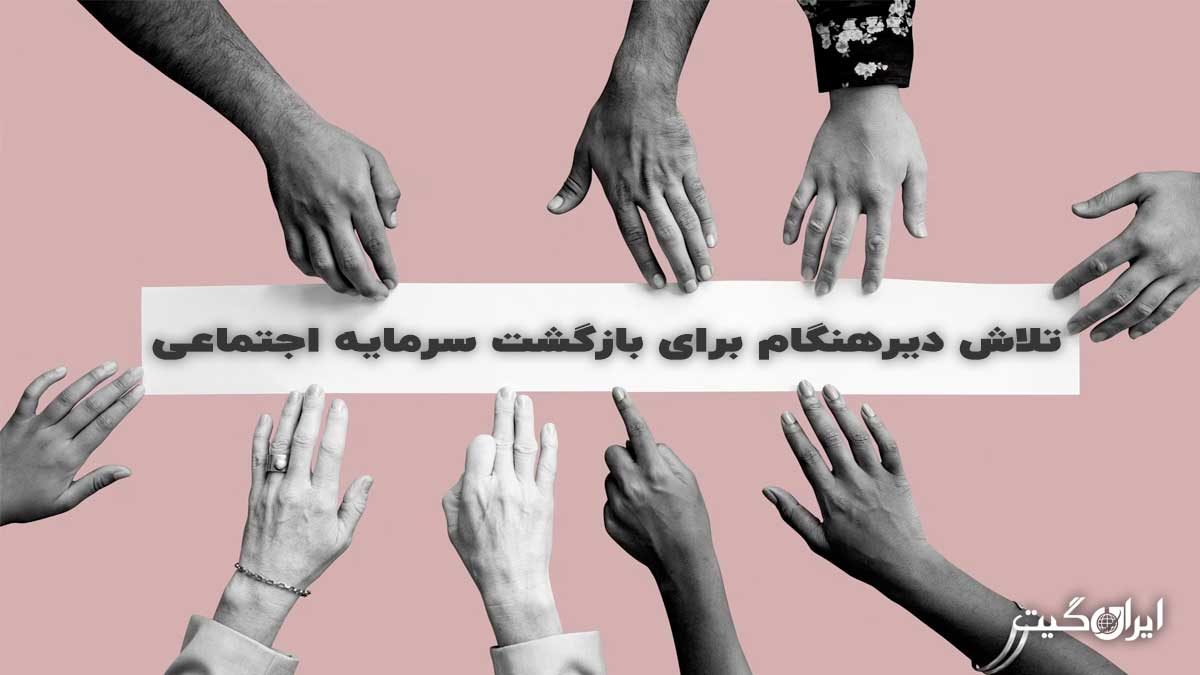A Late Attempt to Restore Social Capital
A Late Attempt to Restore Social Capital: According to Iran Gate, it seems the authorities have heard the alarm bells, but why now? The sequence and frequency of protests in recent years indicate a movement beneath the surface of society. Now, the puzzle of protests is complete. Since 2009, when the middle class, following the uneven competition of the presidential election and its results, demanded fundamental changes in the electoral institution.
It took eight years to reach the next station of protests, this time bringing the people’s livelihood concerns to the streets. This interval reduced to two years and then one year, leading to a civil movement composed of more diverse groups and classes in response to a governmental killing by the morality police, challenging the authorities for about a hundred days.
Have They Sounded the Final Bell of Protests?
Many government supporters, who always find the solution in erasing the issue, are once again seeking their desired outcome with the same old formula, loudly proclaiming it’s over.
But can the multitude of wounds from imprisonment and execution, which will surely bear the fruit of hatred soon, be forgotten? Is the government’s approach for desirable and effective change visible? The answer is clear and seems negative. The veil between the government and the people has fallen, and society has little belief in slogans and even some efforts like the recent pardon decree. Perhaps the reason for this gap and the loss of social capital should be sought in the behavior and resistance of the regime’s head to hear the realities.
Will the People Forgive Too?
The people, rightful and demanding, are fed up with inefficiency and must forgive. A cursory glance at the government’s record on important indicators and considering the potential and resources of a wealthy country under this regime’s rule clearly shows that incompetence and mismanagement have driven the people to despair.
This rebellion and protest have always been suppressed with the most degrading labels and attributing them to the regime’s ideological enemies, with bullets and prisons. Now, in extra time, perhaps a mind detached from the regime’s head has warned of a serious danger, leading to the issuance of a royal pardon. But really, who should forgive whom?
Sometimes it just can’t be done.
Generational division and social collapse, though considered foreign-like talk by the leader of the Islamic Republic, are a bitter reality for a regime that lacks the ears and eyes to confront the real picture.
The loss of social capital didn’t happen overnight and is the result of years of incompetence and inefficiency of the political system. People pinned their hopes on reformists from June 1997 and entrusted them with power, but this didn’t create a permanent social base.
Rather, it was a temporary contract and delegation of authority to convey the middle class’s voice to the top of the pyramid, relying on twenty million votes with the powerful card of the reformist government to demand the regime address their needs. But the regime’s slap in the face of the reform movement resulted in nothing but disillusionment and withdrawal of the people, and this mandate was once again given to the Prudence and Hope government.
However, the regime’s determination to render elected institutions ineffective was stronger than the powerful ballot box, leading to the current situation of a unified government and imitative officials with minimal efficiency. The people’s patience has run out, and now, in extra time, the government wants to sell their first stolen right back to them as a royal grace, but alas, sometimes it’s too late too soon.

